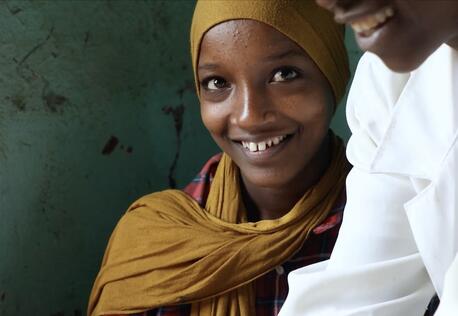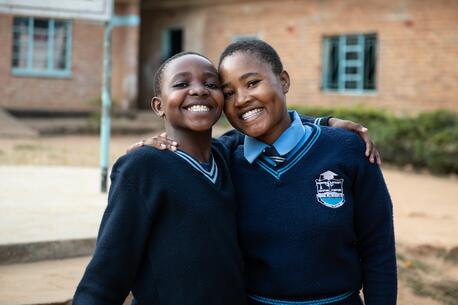
Bringing Light to India's Forgotten Children
UNICEF's Project Lion is working to provide a better future for children growing up in residential care in India.
"Home" is a residential care facility for an estimated 1.5 million displaced children in India. Often privately run and poorly regulated, these institutions can leave children extremely vulnerable to abuse, exploitation and neglect.
To protect India's forgotten children and give them their fair chance at a better life, UNICEF launched Project Lion with a generous seed grant from leadership partners Purvi and Harsh Padia. A holistic, evidence-based program, Project Lion is working in nine states to transform the lives of 200,000 children who have been left without family care, giving them a second chance to grow in loving, stable, nurturing and protective environments.
A Diwali wish: Hope and a brighter future for India's forgotten children
"Diwali is the festival of lights in India. It symbolizes the victory of light over dark, of good over evil, and of knowledge over ignorance," says Purvi Padia, a UNICEF USA board member. "These values are the backbone of Project Lion. The ideals of Diwali are exactly the hope, safety and brightness Project Lion is promoting for India's most vulnerable children."
In its first six months, Project Lion has signed work plans with nine state governments to address the challenges facing children without family care and those at risk of losing it. With UNICEF's technical guidance, both the state and national guidelines for sponsorship, foster care and aftercare have been drafted, setting the groundwork for lasting, sustainable change.
Enforcing standards of care will change the future of India, one child at a time
Moving forward, UNICEF will take more steps to transform the quality of care for India's most vulnerable children, including working to develop national- and state-level partnerships to improve standards of care and family strengthening, conducting needs assessments on services and gaps in alternative care in nine states and forming a national working group on alternative care.
Top photo: © John Edwards for UNICEF
HOW TO HELP
There are many ways to make a difference
War, famine, poverty, natural disasters — threats to the world's children keep coming. But UNICEF won't stop working to keep children healthy and safe.
UNICEF works in over 190 countries and territories — more places than any other children's organization. UNICEF has the world's largest humanitarian warehouse and, when disaster strikes, can get supplies almost anywhere within 72 hours. Constantly innovating, always advocating for a better world for children, UNICEF works to ensure that every child can grow up healthy, educated, protected and respected.
Would you like to help give all children the opportunity to reach their full potential? There are many ways to get involved.





